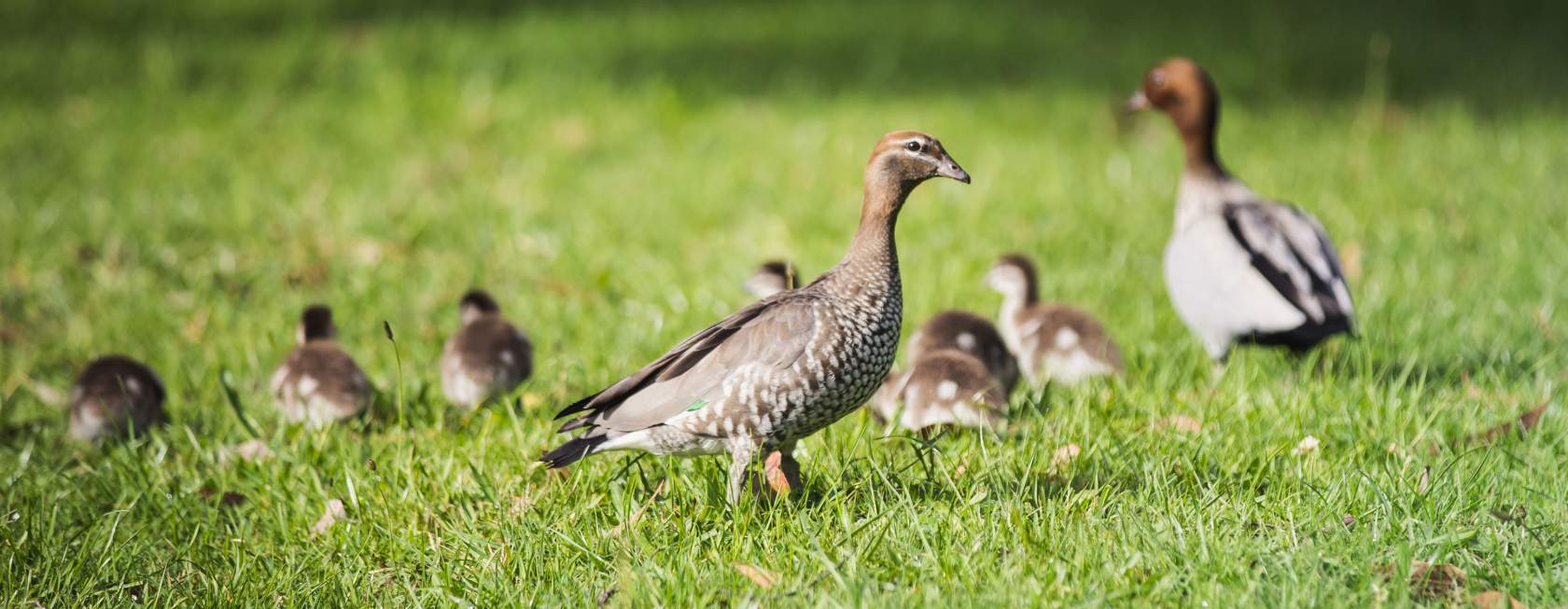
Avian botulism is a paralytic disease that affects wild and captive bird populations, most commonly waterbirds such as ducks, swans, ibis, geese and pelicans.
Botulism is caused by the ingestion of a neurotoxin produced by the bacterium Clostridium botulinum (C. botulinum).
Avian botulism can occur anywhere in the world, however warm conditions, and shallow and stagnant waterways produce favourable conditions for C. botulinum.
Signs and symptoms
Avian botulism presents as paralysis in affected birds. It is common to see many affected birds at a single site of outbreak. Generally, the first indication of an avian botulism outbreak is the number of deceased birds found at a source of water.
Water birds may be unable to keep their head up and out of water resulting in drowning. Other birds may exhibit a dragging of one or both wings, an inability to walk or fly, or poor posture while standing.
This leads to progressive muscular weakness and respiratory arrest if left untreated, and ultimately fatality.
Rehabilitation for affected wildlife
Rehabilitation of individual animals is possible under certain conditions.
Early detection of botulism and removal of the animal from the site to avoid continual ingestion of the toxin is paramount.
Sick birds can be aided by providing them with fresh water, rest and ongoing care until they recover from the paralysis.
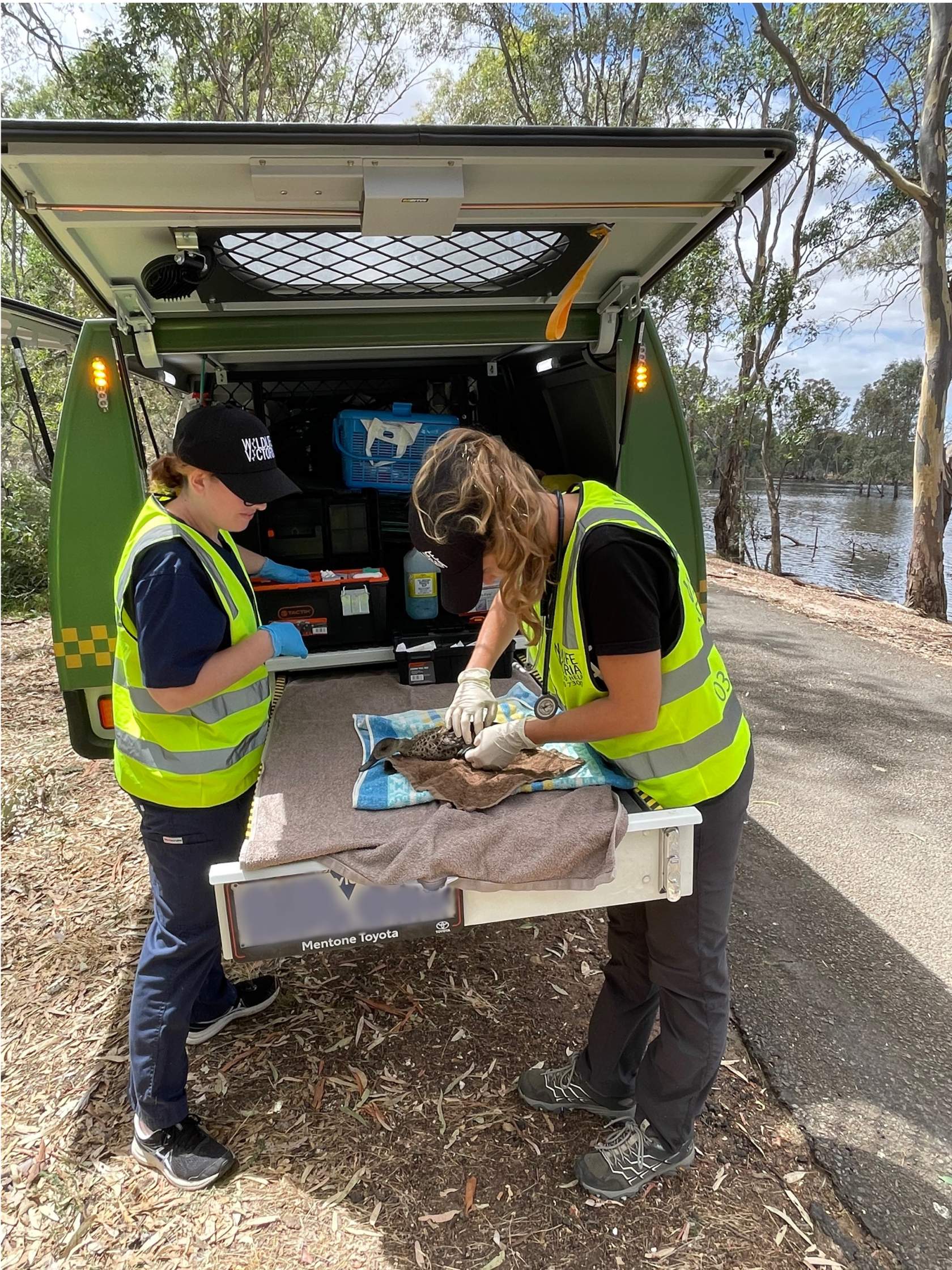
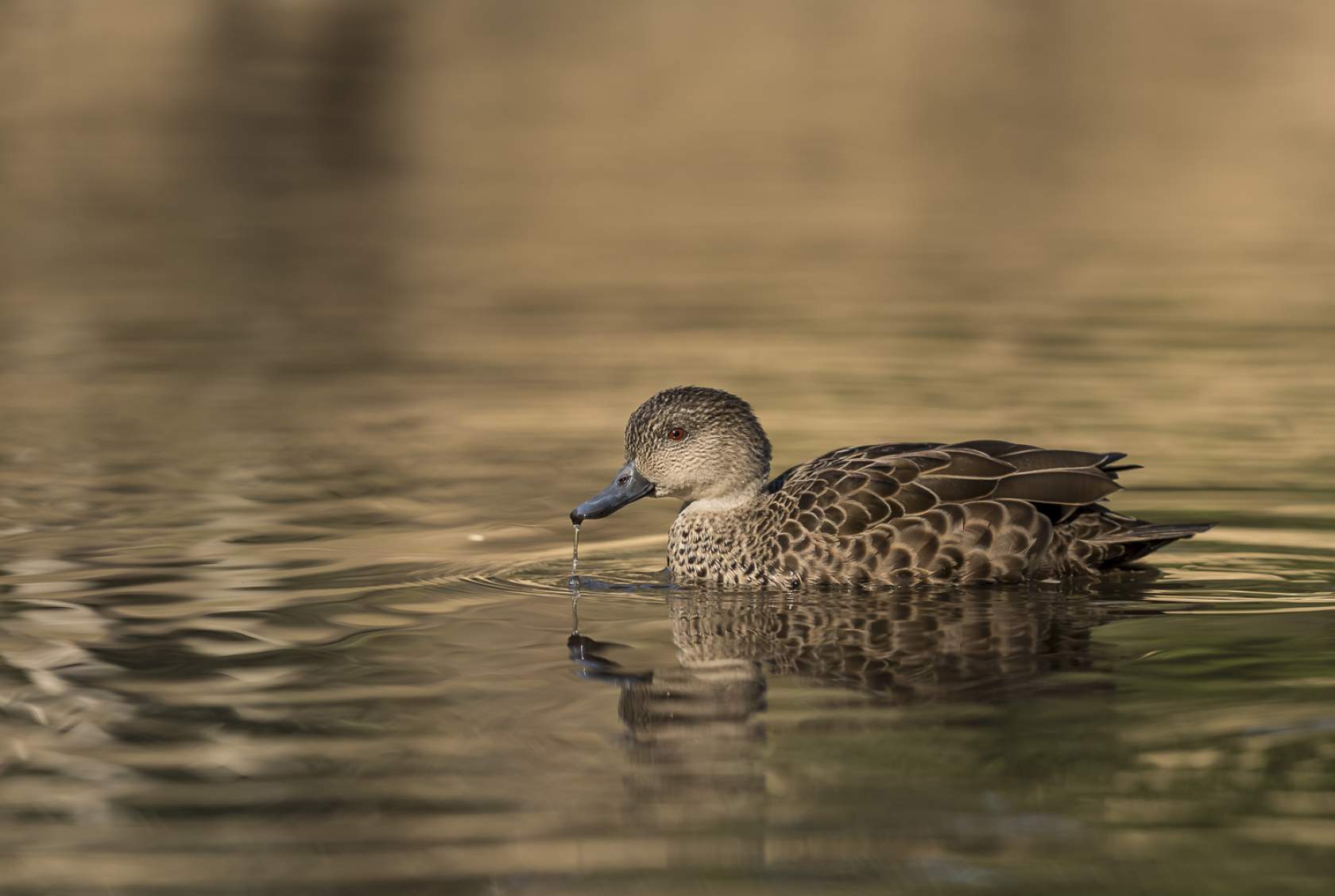

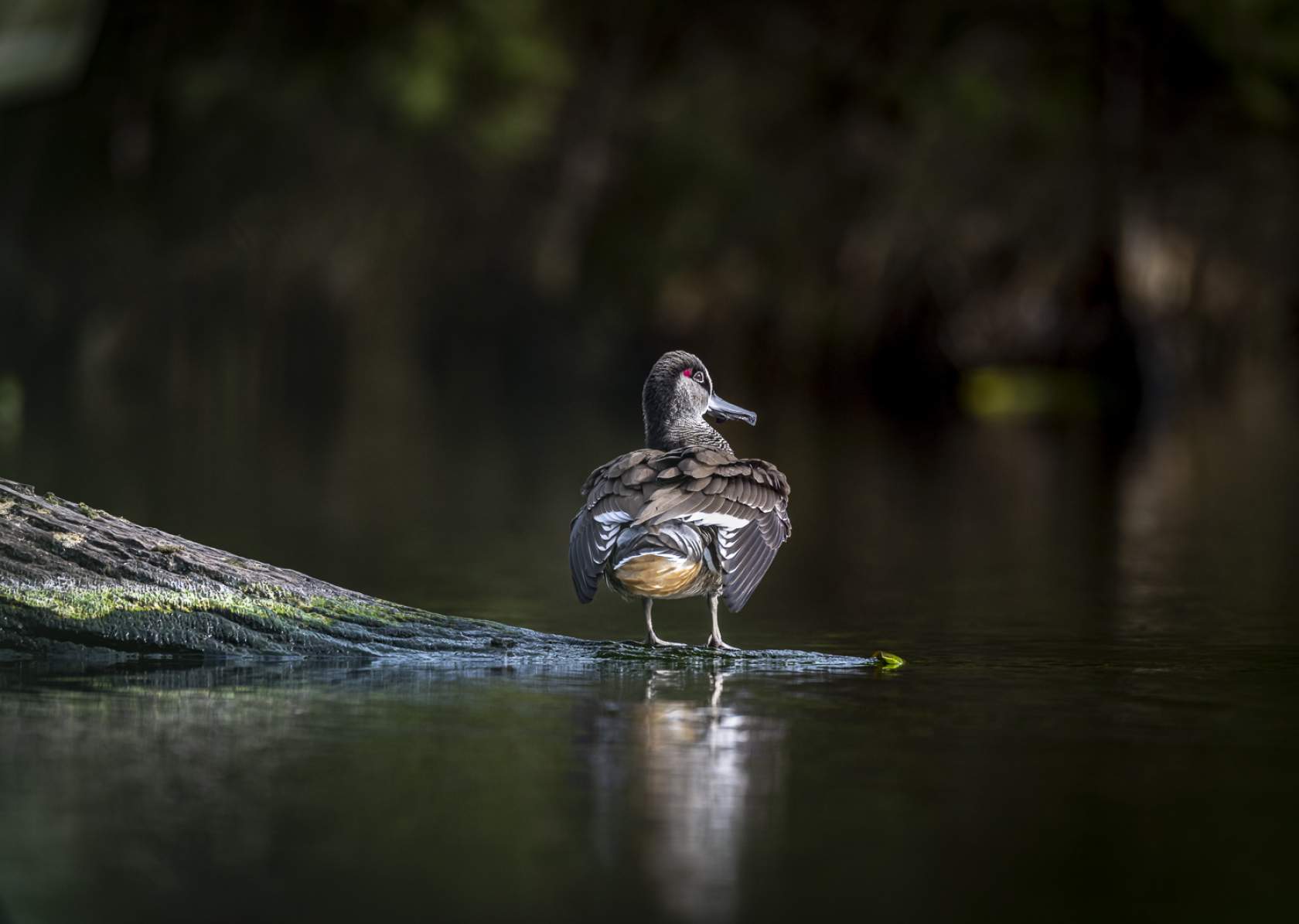

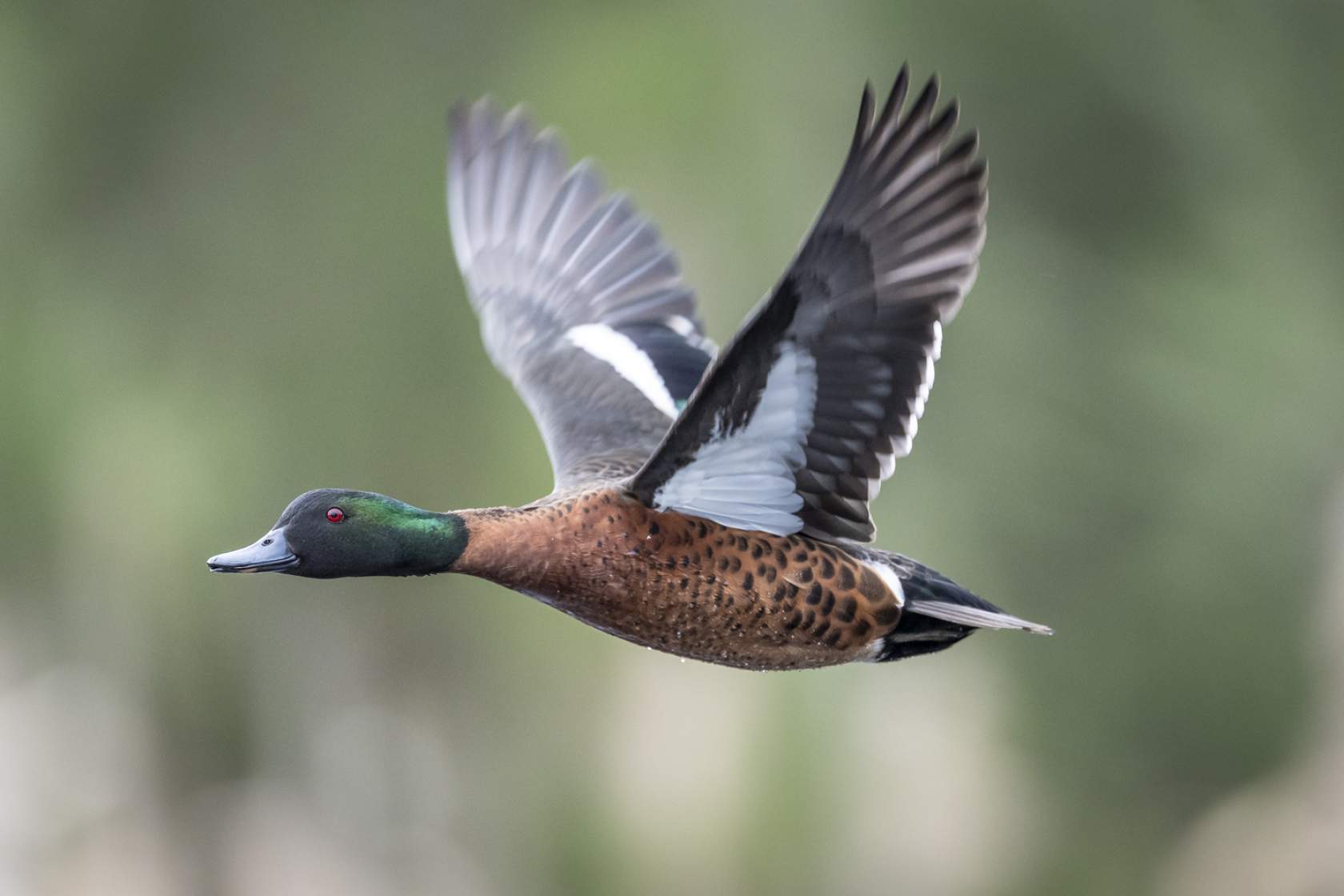
Who to contact
Wildlife Victoria can assist with collecting impacted wildlife and transporting them for veterinary assessment and ongoing care management. If avian botulism is suspected, please contact Wildlife Victoria’s 24/7 Emergency Response Service on 03 8400 7300.
Wildlife Victoria works with the following departments and organisations to help manage outbreaks across Victoria:
Department of Energy, Environment and Climate Action (DEECA)
Parks Victoria
Department of Jobs, Precincts and Regions (DJPR)
Melbourne Water
Regional Water Authorities
Local councils
Melbourne University
Zoos Victoria
Health and safety
Wildlife Victoria recommends members of the public do not try to handle or relocate any animals suspected to have contracted avian botulism.
Any movement or management of animals affected by botulism should be handled by an experienced wildlife rescuer and with the correct personal protective equipment.
Wildlife Victoria recommends rescuers and carers wear gloves. Masks are advised where botulism is suspected but not confirmed, to help protect from other possible airborne causes of bird illness.
